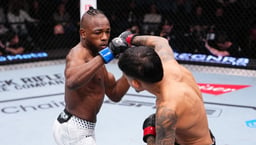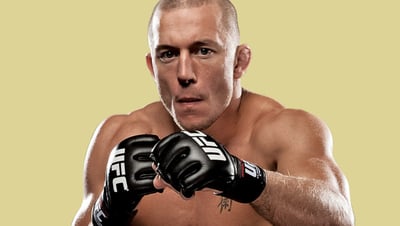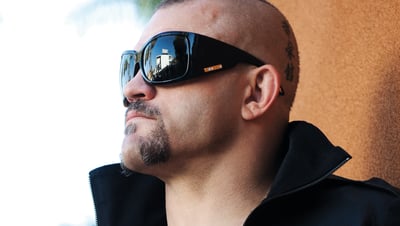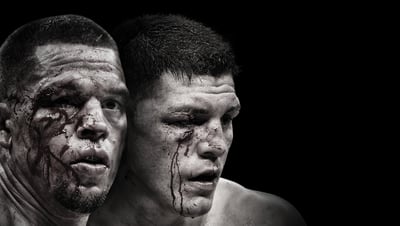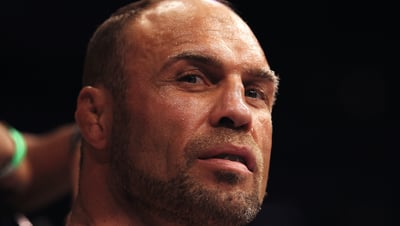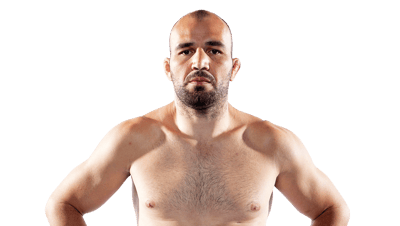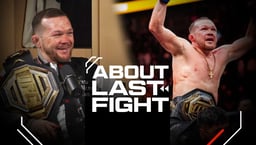
Issue 217
May 2025
In this revealing interview by E. Spencer Kyte, Xtreme Couture’s Eric Nicksick discusses fighter loyalty, coaching ethos, and what it takes to build champions in MMA’s most legendary gym.
Eric Nicksick holds Membership #001 at Xtreme Couture, the Las Vegas outpost, where he is now the leading voice that includes multiple former world champions, numerous talented, ranked veterans, and a wide array of pros. From being an athletic, live body for the stalwarts from the gym’s early days to eventually standing at its helm, the 45-year-old Las Vegas native has worn many hats throughout his time at XC. He is one of only a small handful of individuals that has remained a part of the fabric of the gym throughout its various iterations. The four-time Shawn Tompkins Memorial Coach of the Year nominee sat down with our own E. Spencer Kyte for a candid interview centered around coaching, the evolution of the sport, and the inner workings of Xtreme Couture.
How would you describe your coaching philosophy?
I think it’s adaptable. I have a standard, and I try to make sure all the fighters meet that specific standard, but I’m also adaptable to the athlete as long as they follow that standard. There are things that are important to me that I see from athletes that inspire me, to make me want to work with them, spend time with them, and cut my time short with my family. For me personally, I don’t know any other way. From football, it has helped me immensely as far as understanding the personalities goes.
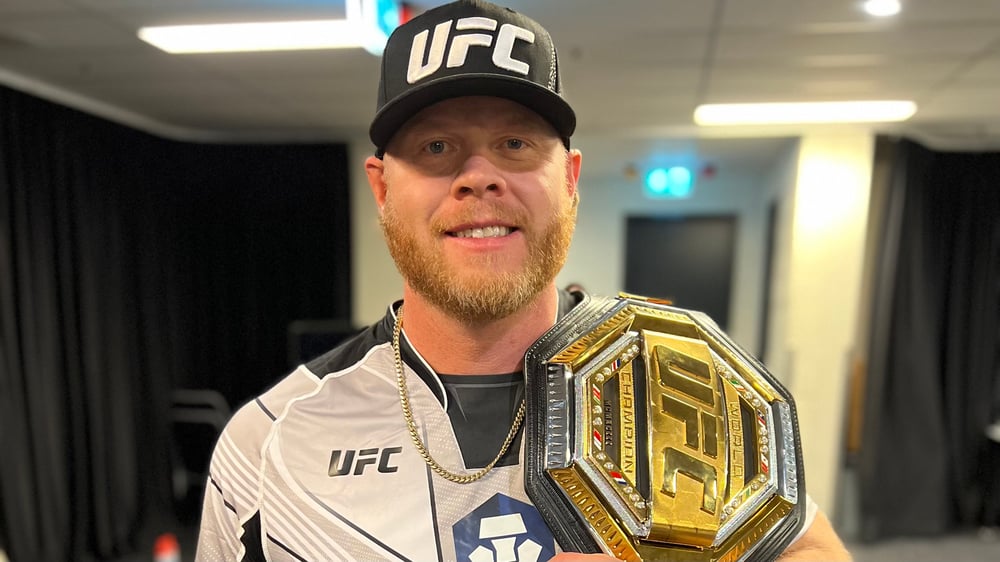
Do you feel there's a standard in the gym where there's a certain level of buy-in from the fighters?
All of the above, plus accountability, professionalism, taking care of not only your teammates. I’ll watch the amateur team tryouts, and people think it’s about skill, but I’m looking for who is the best teammate. Who’s helping the other guys in the room and not trying to kill one another? Iron sharpens iron, but you’re only as good as the team you surround yourself with. I think for me, learning that early on in my career. I was talking to Forrest because we had Forrest on the pod, and for me, that was one of the things that I observed when I was younger in my MMA career that I felt like we lacked was the camaraderie of team, which was something I felt I could add to the MMA space; bringing that football mindset into what we do in MMA.
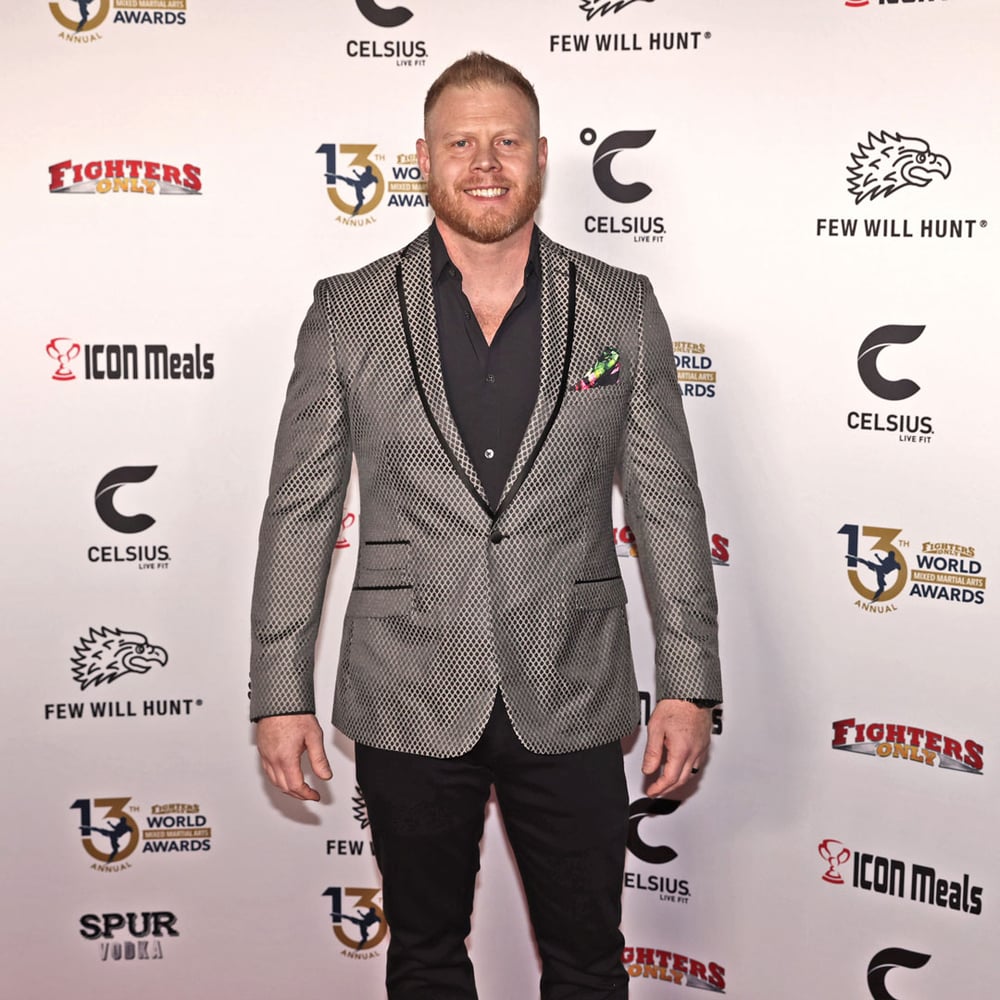
As a guy from a football background, what did you think was lacking in MMA coaching?
It felt very much like an individual sport when it came to guys that would do a training camp, for example. They would be done with their fight, and then they would just disappear, and there are other guys in the room that took lumps, and I didn’t feel that was right. (Mike) Pyle, for example — he would come in and kick the living s*** out of all these guys, win his fight, and these guys would be like, “Hey, I have a fight coming up,” and it would be, “Good luck!” I also feel like those guys took time off their careers, and it never reciprocated back. I think that was definitely something that was one of the holes in terms of how we treated each other back then, and I think there had to be a shift in our standard and our mentality. So, I would say my coaching style would be structured chaos. I still like the chaos, but I hold a high standard physically, mentally, and emotionally, and I expect full buy-in. I want my fighters to think of themselves in the fire, but I also want to give them a system to fall back on, and that was really set by (Robert) Follis in a lot of ways. Follis gave us the standard — it wasn’t mine or his or anybody else’s — and it always us to maintain that standard and live up to that standard no matter who is at the helm.
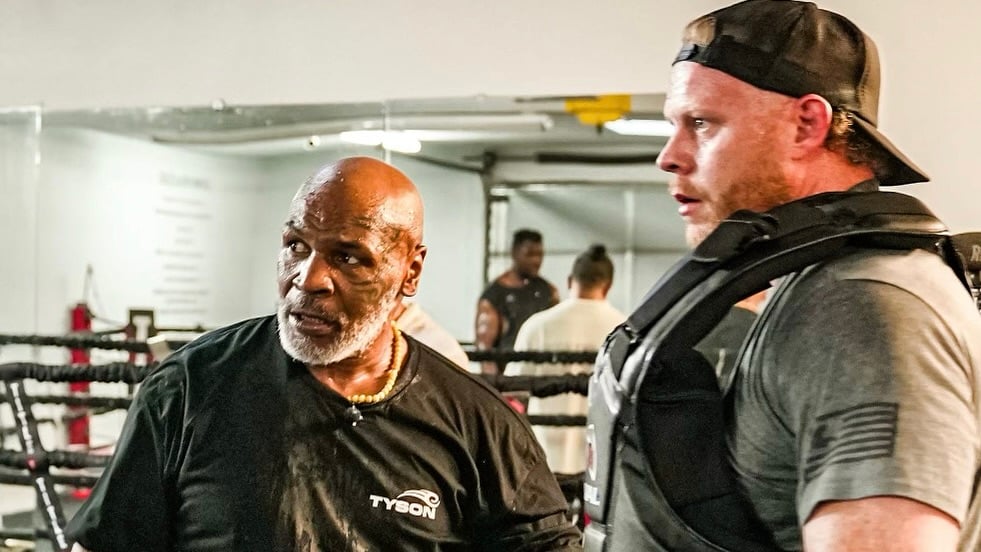
When communicating your standards and expectations, is it done to each athlete as an individual or to the team as a whole?
Yeah, for sure. For example, when Johnny Walker came to the gym, I sat with Johnny and his wife, really listened to what they wanted and what they needed, and it was one of those things where it’s “I wanna know what you guys have to say, and here are my expectations as a coach.” I went over everything with them as best as I could. There are people I don’t work with, but I feel like — Patchy (Mix), for example. I don’t work with Patchy, but he understands what our standards are, what we want as a team. The nice thing about the standard is that it’s for everybody, and these guys uphold it. I don’t have to go around and police the standard once it’s set, which is nice. (Sean) Strickland, same — he would come to the gym, do his own thing, be a nomad, and I was like, “You can do all those things and be that guy, but you’re not gonna get the same quality of rounds (if you do that). But if you follow that standard and not only uphold it but raise the level, guys are gonna follow your lead.”
And I swear, dude — that guy does a really good job of upholding the standard at Xtreme. He polices the gym better than most guys, and guys listen now. That was kind of a sentimental thing when Follis passed away. That was the conversation I had with the team about “How do we keep his memory alive and uphold the standard?” And the best way we could honor him was by keeping our standard high.
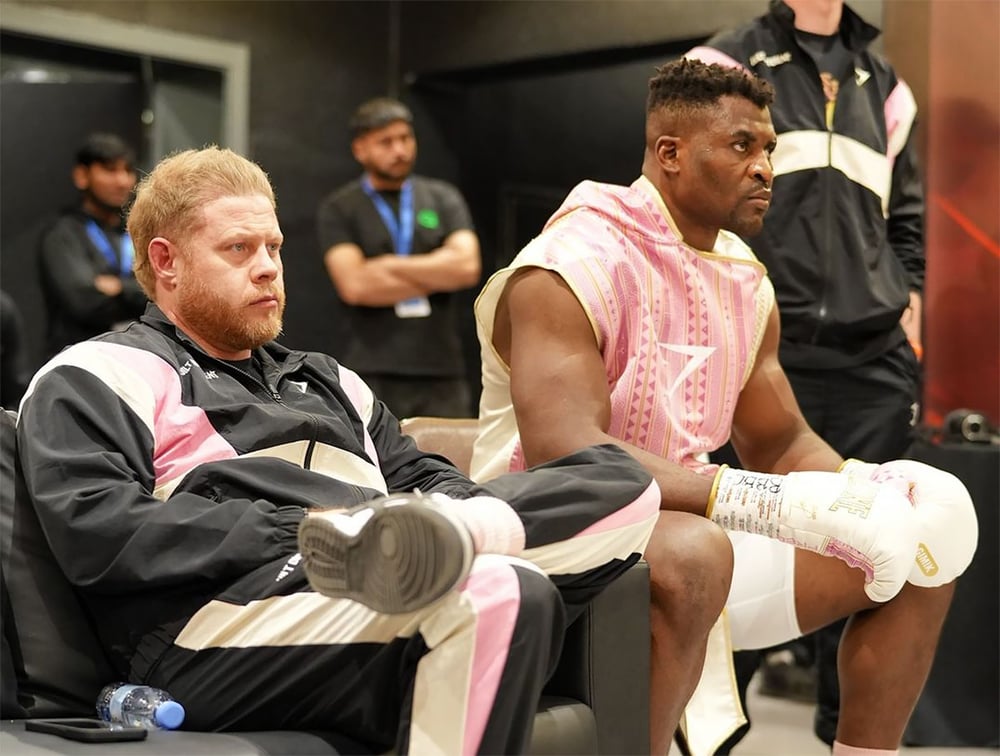
How do you navigate how you approach Fight Week?
I’ve had these conversations with lots of coaches, and listen, you lose so much time in training camps when you’re on the road, so I look at it as I want to be there for the weight cut in case something goes wrong, or I need to help. So that’s Thursday at the latest but with a guy like (Dan) Ige? I’m flying out with that motherf***** because we’re going to war! If there are conflicting schedules or things that I’ve got to get done, then we communicate, we talk, and get it all sorted out. For example, this Atlanta card, I’m flying out Tuesday with Edmen (Shahbazyan) and Mansur (Abdul-Malik), but I’ve got to fly to Nashville on Thursday to corner Jeremy (Kennedy) and then fly back Friday morning. I won’t be there for the weight cut, but we’ve got boots on the ground, and we’re communicating that ahead of time so that these guys know that everything is going to be set up. It’s just part of the job — it really is — and I get it that guys get burnt out, but I’ve seen these coaches that don’t show up for the weight cut, the guy misses weight, and they’re on stage. It’s like, “What are you on stage for? You weren’t here! You didn’t cut weight with these guys.” To me, that’s the worst, and then me and Henri Hooft are there are fight week, doing our s***.
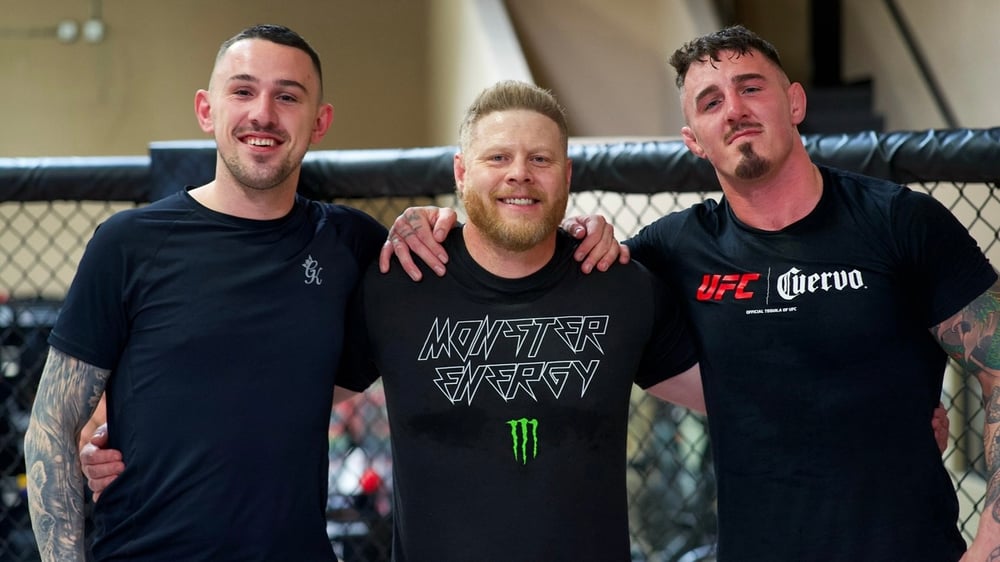
What elements of the sport have changed in the last couple years?
That’s a good question. I would say Fight IQ. Situational awareness has all grown so much. Follis used to say, “The space between the notes is what makes the music,” meaning it’s between the Xs and Os — the feint game, the intangibles, smarter practices, taking care of your brain health; all of those things really stand out. I think the thing that stands out to me the most is the level of athlete we have in the sport now. Take a guy like Mansur. This kid never played another sport, doesn’t know anything about any other sport. He just eats, breathes, sleeps MMA, and has only done that. He wrestled, kick-boxed, did taekwondo, and morphed into an MMA fighter. The kids that are coming in are uber-talented and they’re able to do it out of both stances. Back in the day, you started off and you were either southpaw or you were orthodox, and that was that — maybe you had a step-over or something in your arsenal — but these guys are doing it all from both stances. I think the talent pool is just so much deeper now in terms of how soon people are starting, how much they’re learning. I have kids now that have been in the gym since they were eight years old, and now they’re turning pro.
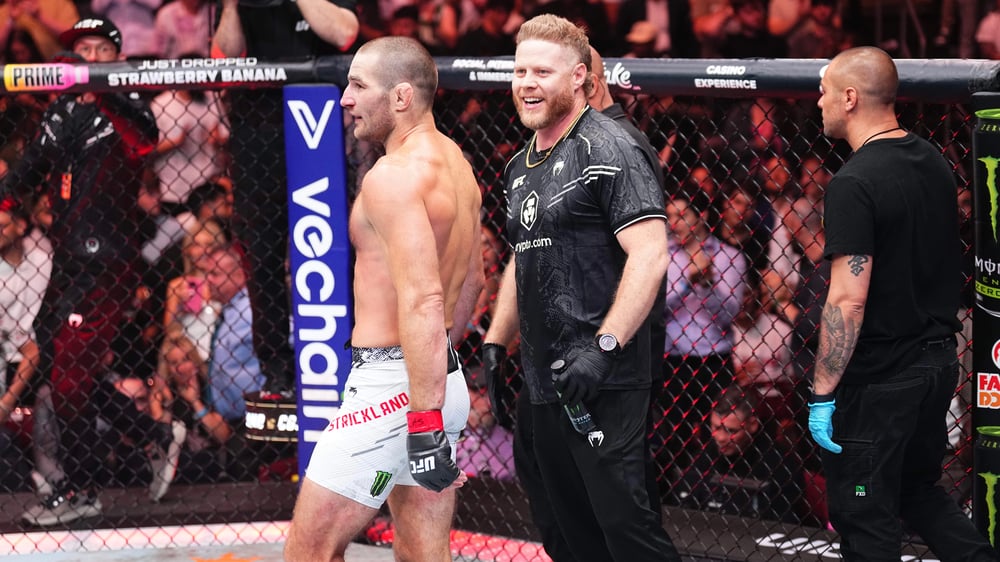
When you talk about the level of athlete, where do you see it the most in the MMA game?
Honestly, I think the processing of information is so vital and key, and I think people just keep getting better with it. I had a guy come and ask me, “Hey Coach — if you were to fight me, how would you beat me?” and I was like, “F***! We should think about this more often.” We do that when we do our tape study, but I thought it was a smart thing to ask. It wasn’t an ego check — he genuinely wanted to know. I think the mental side of the processing is becoming so next level. I’ll watch Alex Volkanovski, Ilia Topuria, Israel Adesanya and take notes on what they do, learning the best I can from these guys because there are people doing great s*** across the world! To me, the IQ and the level of understanding is what really stands out about this next wave. I forget how advanced Randy was — the things he taught me when I was young in my career. I look back and know he was teaching me things even before I was worth a s*** that gave me a leg up and let me get ahead in my career.
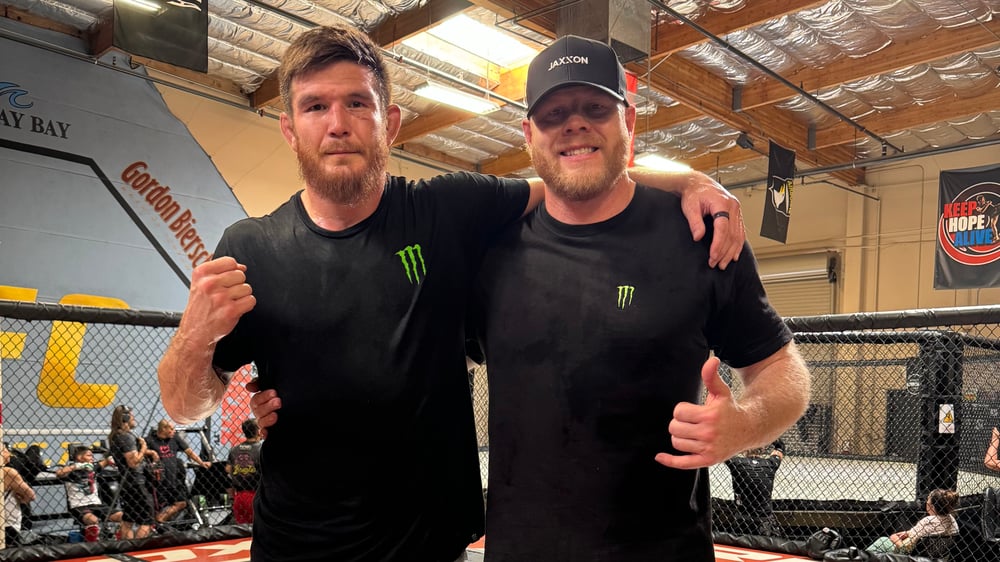
Looking forward, what’s the next advancement?
Man, that’s a good question. F***. I think the playing field is getting more and more level with information. You used to have to invest so much to learn. You have to go to the seminar, you had to buy the DVD, you had to buy the books. So, I think it’s performance and recovery — understanding that rest is one of the most important parts of the day, the brain health, the reduction in hard sparring. Those things are only going to help guys get better and keep advancing. Simulations and situational sparring, as opposed to just rounds. Let’s even take it a step further in terms of the business. I think social media and the way you can market yourself — I think those things have changed and will continue to change.
To use LeBron James as an example: he has his team of people that he works with — his trainers, his personal coaches — and then he has the team, the Lakers, as well. Do you think we’ll see more guys take that type of approach where it’s really dialled in with it’s time for training camp, with a greater level of investment?
I think what you just described, the way you’re describing it — we do that, but you described it better. So with Ige — the practice that we do where we blur out faces out, it’s an individual style of practice, but we always joke around that we’re the Dev Group of the Navy SEALS; we’re the elite of the elite. Why we do that practice and why we call it development group is because we want to develop new tactics, techniques, and procedures. That’s an outside of camp thing, but the guys that are in camp, the whole entire unit is working together to help that one guy get their win, get their victory. It’s a team within a team. You have to be elite to be there, but the only way you can be in there is when you’re a contributor to the group. It really developed out of COVID because that period showed us that individualized training is beneficial, and boxers have been doing that their entire careers, but like you said, you’ve got to hire these guys because if you’re not doing it from a wider team perspective, you have to compensate these guys in order to ask them to show up and get the s*** kicked out of them.
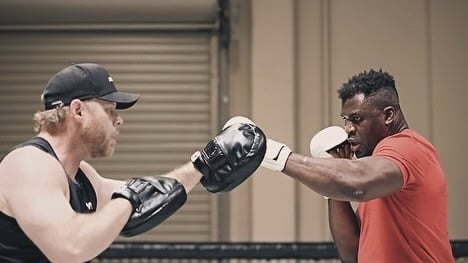
With the younger guys like Mairon Santos and Matheus Camilo, is there a specific mentorship program, or is it more organic?
So, after Matheus’ loss, a couple of things I reminded him of where that Dan Ige lost his debut and then won six straight. I said, “You need to be around Kai. You need to be around Dan. You need to be around Julian more so that those guys can mentor you not only in terms of fighting and skills, but situational awareness and Fight IQ.” The mistake he made in that fight, none of those guys would have made that mistake. When it was over, the first thing I did was take the blame. I said, “I should have coached you better, should have made you understand some of these things better,” but take it off of him and let him know it’s us — that we’re all responsible for the result and getting things fixed. But I also want him to understand that if you can spend more time with these individuals, watch the way they work, watch the way they train; understand the verbiage, the awareness, the Fight IQ. They’re guys I want him to train with, spar with, and then it’s three coaches inside of the coach, and we’re all invested in the same thing, and that’s getting this kid a win.
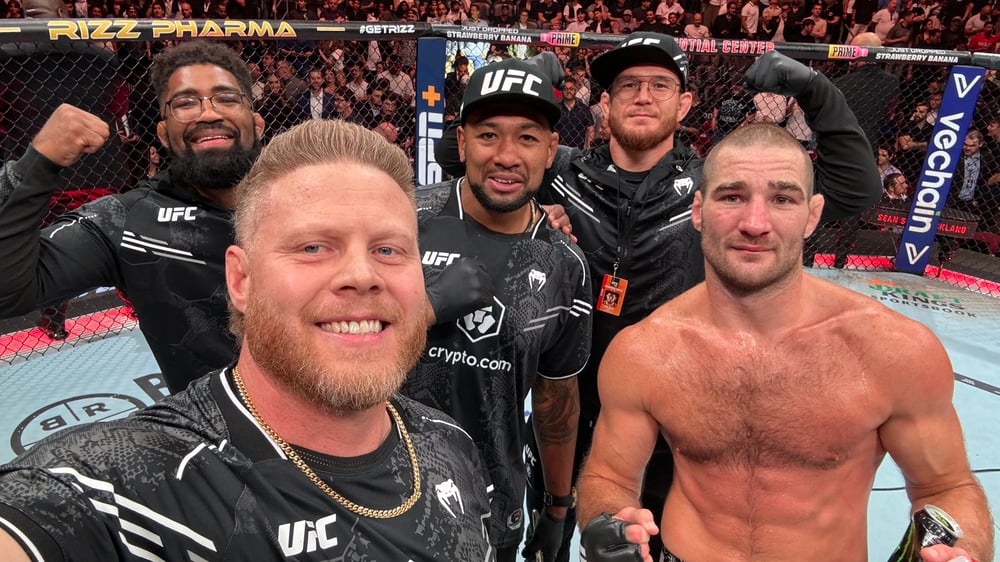
What are the next goals?
I’m big on consistency, man. You think about these kinds of things and think, “Aw, it doesn’t matter,” but I’ve been nominated now four years in a row for Fighters Only, for Coach of the Year. I haven’t won any of them, but I want to continue that because I feel like being nominated is you getting rewarded for your hard work. Whether you win or lose, I think there is a sense of pride in the consistency of “this dude is always in the conversation.” I think that is important. I love being able to see these young guys — and it’s not even financially secure, but a $50,000 bonus is life-changing, and being able to see a guy like Mairon with his young baby, watching him fight so hard to get a Venom bag and all that stuff. I take a lot of pride in that. Matheus didn’t get the win, but he’s been training with me since he was 16 years old. I stood so far back when he walked and had this. It’s like watching your kid walk for graduation. I was so proud, and that moment felt so good. Obviously, I wanted him to get the win, but there was a win there too. There is a win in being there. I think being able to help guide some of these athletes into a position where they’re able to take care of their families. They’re realizing their potential — I think Mairon has the potential to be a champion, or at least a contender for a long time — that stuff really motivates me. I love chasing that. And for the gym, it’s the same. Keeping that level of consistency, bringing those guys along with us — the fighters and the coaches.
...


